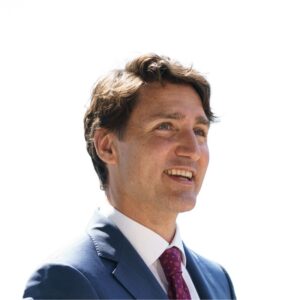Saturday, July 5, 2025
Three out of four of the candidates vying to lead the federal Liberal Party of Canada, and hence to become Canada’s next Prime Minister, have vowed to scrap the federal carbon tax, more properly known as the fuel levy, if elected. The fourth has promised to keep the tax but to stop the annual escalation of the amount of the carbon tax.
From a political perspective scrapping the carbon tax is almost certainly the only path to re-election of a federal Liberal government. The carbon tax has become such a focussed target of the official opposition and of what is probably a vocal minority among the electorate that recovery from the political damage caused by the carbon tax is likely impossible.
Unfortunately scrapping the carbon tax may be the end of use of economic instruments by Canadian governments for a least a decade or two. This is unfortunate because many, if not most, economists have reported that properly designed economic instruments are more effective and less damaging tools to improve the environmental performance of our society than the typical command and control regulation. But it is too late now to recover from the carbon tax debacle in Canada.
Politicians knew that the public was adamantly opposed to more taxes when the federal carbon tax was introduced in 2016. Had more time and effort been put in to explaining to the public what an economic instrument for environmental protection is all about it may have been possible to win sufficient support among voters, or at least those voters who were not climate deniers, to maintain the credibility of the carbon tax. The government should have fought as hard as possible to explain that the fuel levy is not a tax and that most citizens will receive more in rebates than they pay in fuel levy. But this was not done and by the time some significant public education initiatives were begun, in 2024, it was too late.

Prime Minister Justin Trudeau resigned on January 6, 2025. According to Caroline Brouillette, executive director of Climate Action Network Canada, “Justin Trudeau has accomplished more on climate policy than any other Canadian Prime Minister so far.” However, critics called for the Canadian government to “axe the tax.” Credit: LinkedIn/Justin Trudeau.
So what happens next on the federal government climate change file? There is the possibility that nothing happens or that existing greenhouse gas (GHG) emission reduction efforts are scrapped and not replaced. Either possibility would be a disaster for future generations. The carbon tax must be replaced with something.
It may be credible to replace the carbon tax with a cap and trade system based on emissions from industry and consumer usage of fuels but there may now be as much push back on such a system as there is on the carbon pricing mechanism. A visible and fixed climate change fee on the price of fuel is a possibility but it too may be as controversial as the steadily increasing fuel levy. We could have federal caps that force up prices on the production, import and household use of carbon and hydrocarbon fuels, a form of rationing, but it is difficult to imagine that this would go over well. The challenge is not to design a system that reduces GHG emissions in Canada but to design a system that will not destroy the electability of the party that introduces it.
Canada urgently needs a GHG emissions reduction tool that replaces the carbon tax with a robust and publicly supported mechanism that will help reduce our emissions to net zero and that engages the public for their support. Without it we risk joining the world’s energy pariahs, doing significant damage to our own economy, environment, and health. Canada must not rely on everybody else to do what is necessary to reduce and eventually either end or adapt to the scourge of climate change.
On March 9th, the Liberal Party will select its new leader, who is expected to assume office as the next prime minister of Canada, appoint the 30th Canadian ministry, and lead the party into the 2025 federal election. Voting began on February 26, 2025.
![]()
Colin Isaacs is a chemist with practical experience in administration, municipal council, the Ontario Legislature, a major environmental group, and, for the past three decades, as an adviser to business and government. He is one of the pioneers in promoting the concept of sustainable development for business in Canada and has written extensively on the topic in the popular press and for environment and business platforms.
Featured image credit: Getty Images











